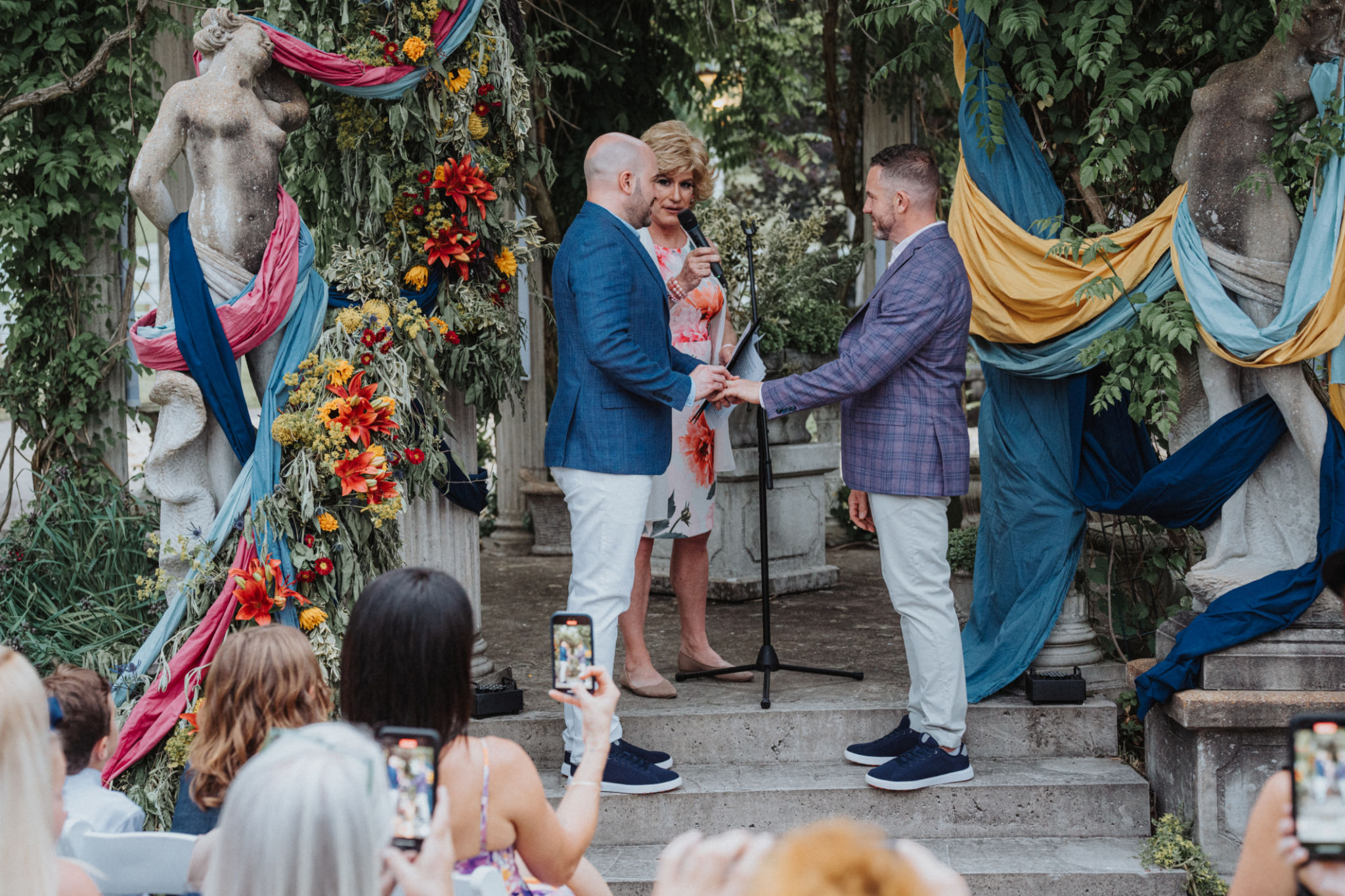The Ultimate Guide to Choosing Your Wedding Officiant
Understanding the Role of a Wedding Officiant
When planning a wedding, selecting the right officiant is crucial to ensuring your ceremony is both meaningful and memorable. The officiant sets the tone for your nuptials and guides you through the most important part of your day: the exchange of vows. Understanding their role is vital to making the best choice for your special day.
Officiants can range from religious leaders to secular celebrants. Your choice will largely depend on the type of ceremony you envision. A religious officiant may be appropriate for a traditional ceremony, while a civil or humanist officiant might suit a non-religious event.

Determining Your Ceremony Style
Before you start your search, it's essential to decide on the style of your wedding ceremony. Are you planning a traditional religious service, or do you envision a more personalized, secular celebration? The style of your ceremony will guide you in choosing an officiant who aligns with your vision.
If you're opting for a religious ceremony, reach out to leaders within your faith community. For a secular ceremony, consider a professional celebrant who specializes in personalized weddings. Some couples even choose a friend or family member to officiate, adding an intimate touch to the proceedings.
Researching Potential Officiants
Once you've determined your ceremony style, it's time to research potential officiants. Start by asking for recommendations from recently married friends or family members. You can also explore online directories and read reviews to find officiants with positive feedback and experience in your preferred style.
When evaluating candidates, consider their personality and presence. An officiant should be someone who makes you feel comfortable and confident. Their ability to engage with you and your guests will significantly impact the atmosphere of your ceremony.

Meeting with Prospective Officiants
After narrowing down your options, arrange meetings with potential officiants. This initial meeting is an opportunity to discuss your vision for the ceremony and assess whether their style matches yours. Prepare a list of questions to ask about their experience, fees, and availability.
During these meetings, pay attention to how well the officiant listens to your ideas and responds to your questions. Their willingness to personalize the ceremony according to your wishes is a good indicator of their suitability for your wedding.
Finalizing Your Choice
Once you've met with several candidates, take some time to reflect on which officiant made you feel most at ease and aligned with your vision. Consider their experience, flexibility, and the rapport you established during your meeting.
Before making a final decision, verify their credentials and ensure they are legally able to officiate weddings in your location. Once you're confident in your choice, proceed with booking and discuss any specific requirements or rehearsal plans well in advance.

Preparing for Rehearsals
With your officiant chosen, preparation for rehearsals can begin. Rehearsals are crucial for ensuring everyone understands their roles and the flow of the ceremony. Discuss the ceremony script with your officiant and make any necessary adjustments.
Your officiant should guide you through a practice run, offering tips on timing and delivery. This rehearsal not only helps alleviate pre-wedding jitters but also ensures that the actual ceremony proceeds smoothly.
The Importance of Communication
Maintaining open communication with your officiant throughout the planning process is key. Regular updates and discussions will help ensure that both you and the officiant are on the same page regarding any changes or special requests.
A good officiant will be responsive and supportive, helping you create a ceremony that genuinely reflects your relationship and personal values. Their expertise can be invaluable in crafting an unforgettable experience.